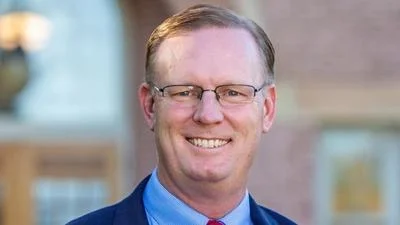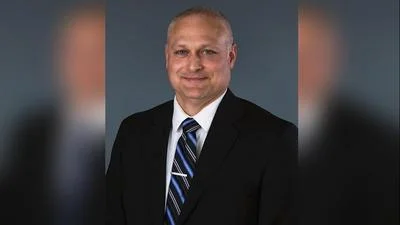Avera has received over $2.5 million in funding from the Health Resources and Services Administration (HRSA) to support nursing and address health care workforce capacity through innovative solutions including telehealth and virtual nursing.
“Health care workforce is a critical need throughout the entire Avera footprint. The solution isn’t simply to hire more, because there aren’t enough trained and qualified nurses and other frontline caregivers for all the needs that exist. We are looking to novel ways to better support the professionals we have through technology, to maximize innovative solutions for caregivers to spend more time doing what led them to this profession-helping others, and reduce time spent doing administrative and regulatory tasks like documentation,” said Rachael Sherard, Senior Vice President for Rural Health at Avera.
The first grant, Project NEXT, a $1.5 million grant from HRSA, will support a three-year Rural Public Health Workforce Training Network Program. Project NEXT will prepare the rural public health workforce by providing cross-trained skills in telehealth, health information technology and skill opportunities such as telemetry monitoring and virtual nursing.
Cross-training will allow others to perform some tasks of nursing, such as documentation, allowing nurses to spend more time at the patient bedside. And telemedicine, telemetry monitoring and virtual nursing extend expertise across the miles through interactive virtual technology.
“Following the national trend, South Dakota’s most acute health workforce need is certainly nursing in rural areas. Project NEXT offers Avera an opportunity to support nursing staff, not simply by hiring more RNs, but also by leveraging the capacity of its health IT workforce to intervene in ways that are new and cutting-edge,” Sherard said.
South Dakota was a priority state for the NEXT grant due to low projection of available nurses compared to surrounding states. And in fact, 30% of new RN graduates who are trained in South Dakota leave the state.
A rural training network will be established throughout the state including Avera St. Luke’s Hospital, Aberdeen, S.D.; Avera St. Mary’s Hospital, Pierre, S.D.; Rural Health Care, Inc.; Northeast South Dakota Area Health Education Center; Landmann-Jungman Memorial Hospital, Scotland, S.D.; Platte Health Center Avera, Platte, S.D.; and Dakota State University, Madison, S.D.
The second HRSA grant is part of the Nurse Education, Practice, Quality and Retention (NEPQR) Registered Nurse Training Program (RNTP) and provides $1 million in funding over three years.
The project, “PREPARE-RNs: Partnering to Address the Critical Nursing Shortage in South Dakota,” will prepare BSNs and RNs for careers in rural acute-care critical access hospitals by providing education in cultural awareness, social determinants of health, health equity and health literacy. The grant offers Avera and its lead partner, South Dakota State University, a collaborative opportunity to train, recruit, and retain nursing staff by removing barriers and perceptions about practicing in a rural acute-care setting.
Several critical access hospitals will serve as initial training sites including Avera Dells Area Health Center, Dell Rapids, S.D.; Avera De Smet Memorial Hospital, De Smet, S.D.; Avera Flandreau Hospital. Flandreau, S.D.; Avera Gregory Health Center, Gregory, S.D.; Landmann-Jungman Memorial Hospital, Scotland, S.D.; Milbank Area Hospital Avera, Milbank, S.D.; Avera Queen of Peace Hospital, Mitchell, S.D.; Avera St. Benedict Health Center, Parkston, S.D.; and Avera Weskota Memorial Medical Center, Wessington Springs, S.D.
“The nursing shortage we’re seeing is nothing short of historic. Responding to this crisis requires time, innovation and collaboration across several sectors,” said Karna Pfeffer, RN, MSN, Director of Clinical Excellence and Education at Avera St. Mary’s Hospital in Pierre, S.D., and project director for the PREPARE-RNs grant. “We are grateful for the recognition of this issue at the federal level, and the grant funding to address these issues in creative ways.”
These projects are supported by the Health Resources and Services Administration (HRSA) of the U.S. Department of Health and Human Services (HHS) as part of two awards totaling an estimated $2,595,000 million (Project NEXT: $1,545,000 over 3 years; PREPARE RN: $1,050,000 over 3 years) with 0% of the awards financed with non-governmental sources. The contents are those of the author(s) and do not necessarily represent the official views of, nor an endorsement, by HRSA, HHS, or the U.S. Government. For more information, please visit HRSA.gov.
Original source can be found here.




 Alerts Sign-up
Alerts Sign-up